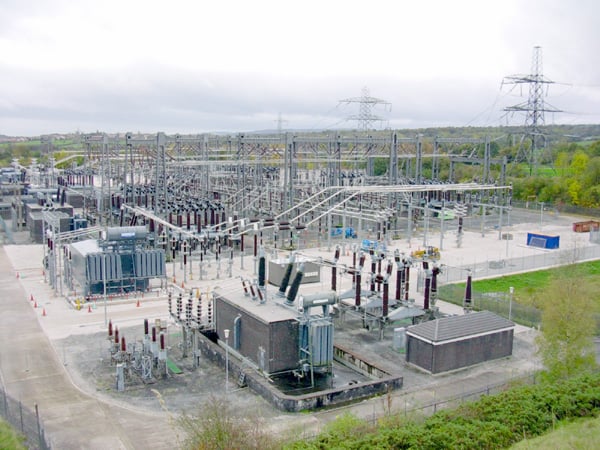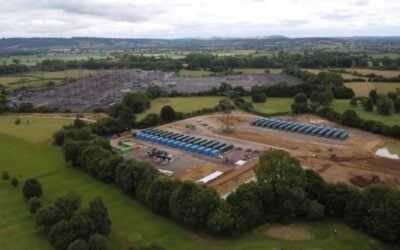The UK’s main electricity transmission network operator (TNO) National Grid has published a new consultation on its system needs and product strategy which paves the way for a number of new services tenders to be made available from next year.
The ‘systems needs and product strategy’ consultation, released yesterday, includes a number of proposals which the transmission system operator wishes to consult on with the industry before unveiling its new balancing services strategy in September this year.
Enjoy 12 months of exclusive analysis
- Regular insight and analysis of the industry’s biggest developments
- In-depth interviews with the industry’s leading figures
- Annual digital subscription to the PV Tech Power journal
- Discounts on Solar Media’s portfolio of events, in-person and virtual
Headline proposals within the document include;
- A new frequency response product to replace Enhanced Frequency Response (EFR) and Fast Frequency Response (FFR) tenders, earmarked for March 2018,
- A new frequency response product to take into account the value associated with resolving system inertia,
- A new reserve power product to be released in 2018/19,
- A new reactive power market, also to be made available by the end of 2018/19,
- And a restoration strategy for black start programmes to be published later this summer.
The consultation will remain open until 18 July 2017, the responses to which will feed into the publishing of a new balancing strategy this September.
The document states the need for change within National Grid’s current balancing services following complaints that it is not accessible to all potential providers; was complicated, unclear and not future-proof; and that investors had been left in the dark as to National Grid’s long-term plans, preventing them from making informed decisions.
This is in spite of the fact that over the past year or so, the TNO has been praised by the energy storage industry worldwide for the hosting of the frequency response tenders, with the EFR auction in particular conferring a boost to battery developers.
In a blog for National Grid Cathy McClay, head of commercial, electricity at the operator, said that the new document intended to answer a number of questions that had emerged from the industry regarding balancing services.
“Great Britain’s electricity sector is undergoing a rapid transformation. The change to a smarter and more flexible energy system is already under way.
“As the pace of change in Great Britain’s energy sector increases, potential investors and current market participants alike need clarity… By publishing our first System Needs and Product Strategy consultation we aim to progress this conversation with industry. The goal is to provide a clear picture of the types of balancing services we will need to buy in the future to maintain secure and affordable electricity supplies.
“Over time the number of balancing services procured by National Grid has grown to more than 20, ranging from Enhanced Frequency Response, to Demand Turn-Up, Reactive Power, and Black Start. We plan to simplify these services, first by removing any obsolete products and then standardising the way that contracts work, improving market information and trialling new ways of procurement,” she said.
Changes could drive energy storage industry forwards
The energy storage market has meanwhile responded positively, stating that the proposals have the potential to both drive uptake of the technology and reduce consumer bills.
Frank Gordon, policy manager at the Renewable Energy Association, said: “Our members will welcome the move to simplify what is currently a complex hodgepodge of incentives built up over many years. These National Grid proposals will increase transparency in the balancing services market, which is one of the markets identified as critical if we are to upgrade our energy system so it is cheaper, less polluting, and more flexible.
“These technical system ‘products’ don’t seem revolutionary or sexy but their reform is a business-critical activity if we are to accommodate new flexibility, electric vehicle, and energy storage technologies. This document is recognition by National Grid that we are undergoing a paradigm shift and that existing regulatory structures need to adapt, which will in turn create market access for further innovators.
“New ministers in Westminster should take notice as there are a range of government regulations that are also in need of reform.”
At a macro level, uncertainty surrounds the UK’s political future following the ruling Conservative Party’s failure to gain a strong enough win in the country’s recent general election to form a majority government. Ian Larive, an investment director at developer Low Carbon, blogged for Energy-Storage.News ahead of the election that political turmoil should not allow the energy storage and renewables industries to lose sight of the enormous progress it is making. Meanwhile, Solar Media market research analyst Lauren Cook recently also blogged for this site on how energy storage has taken pole position as the “most active sector in the UK energy market”.







